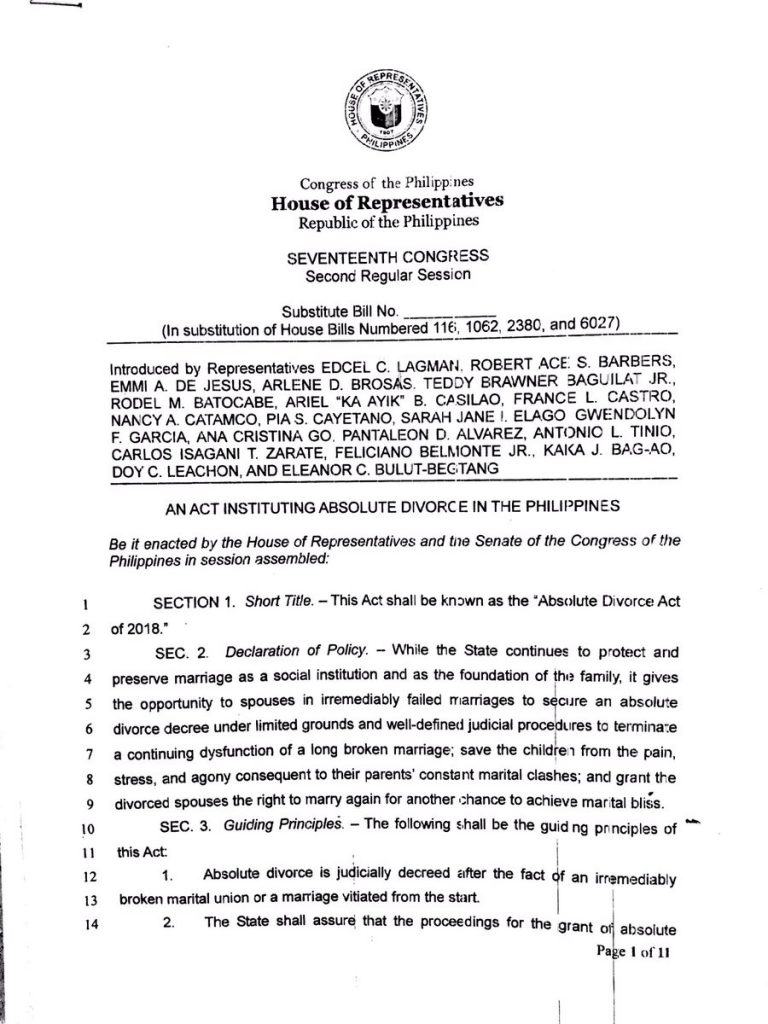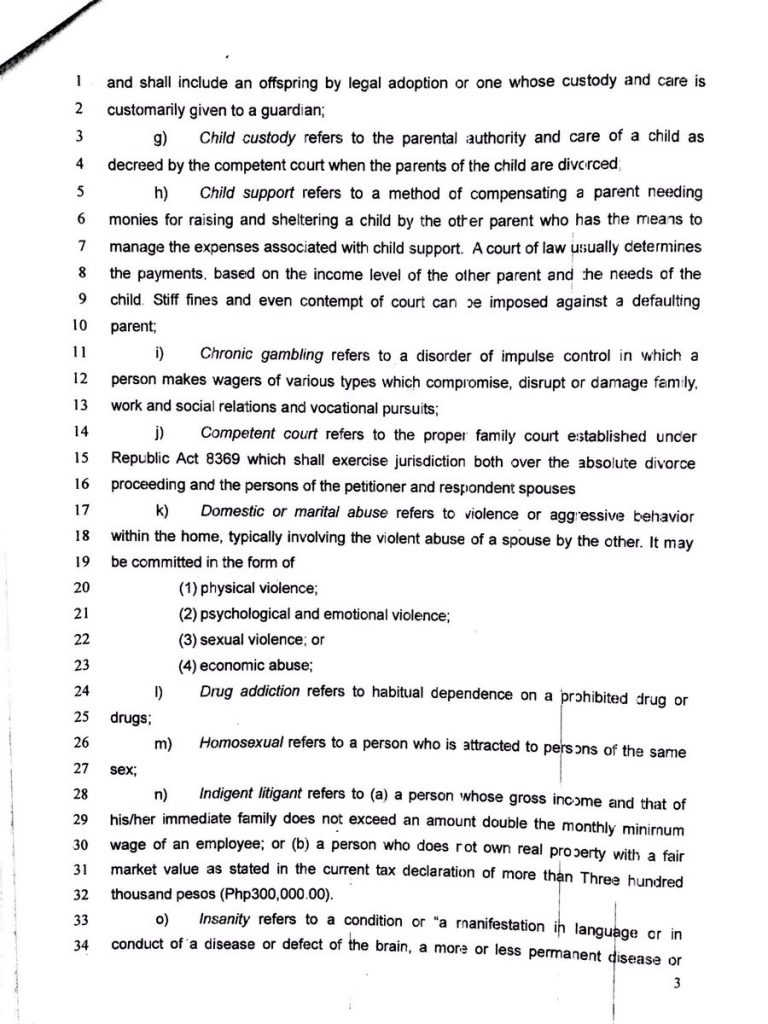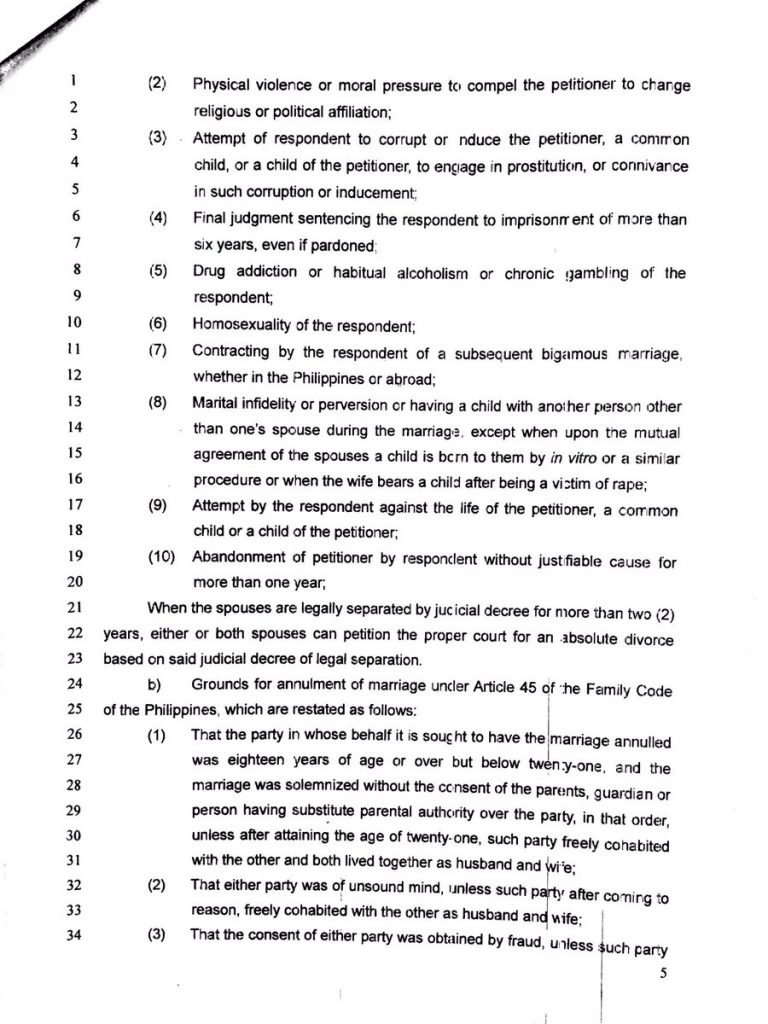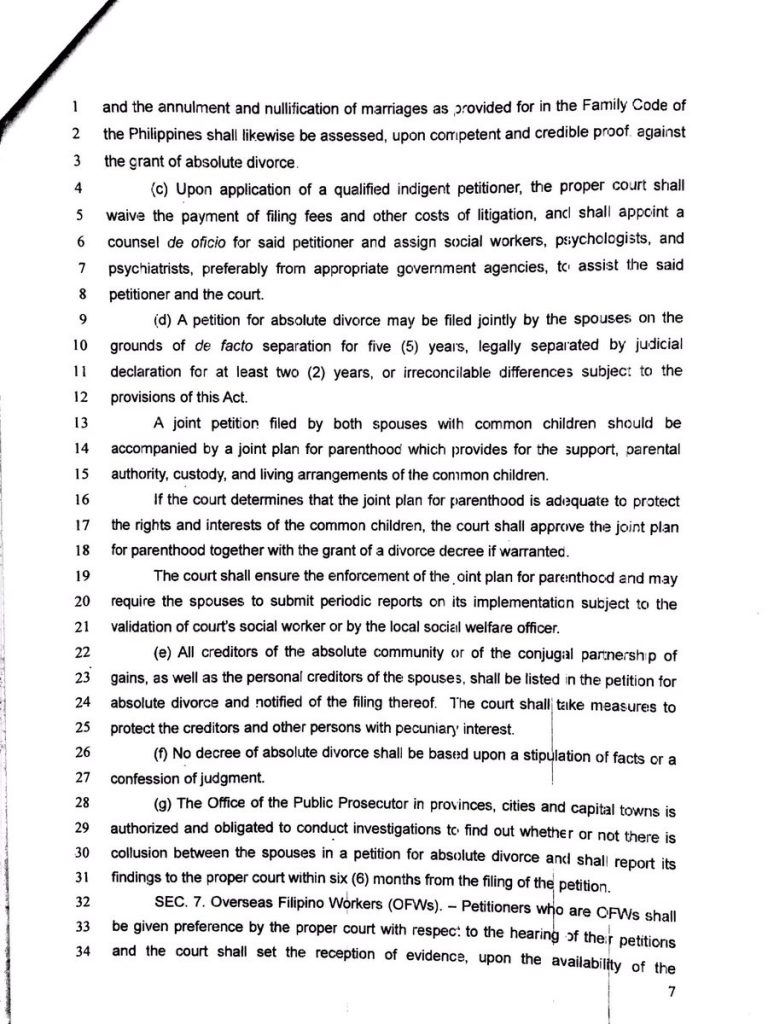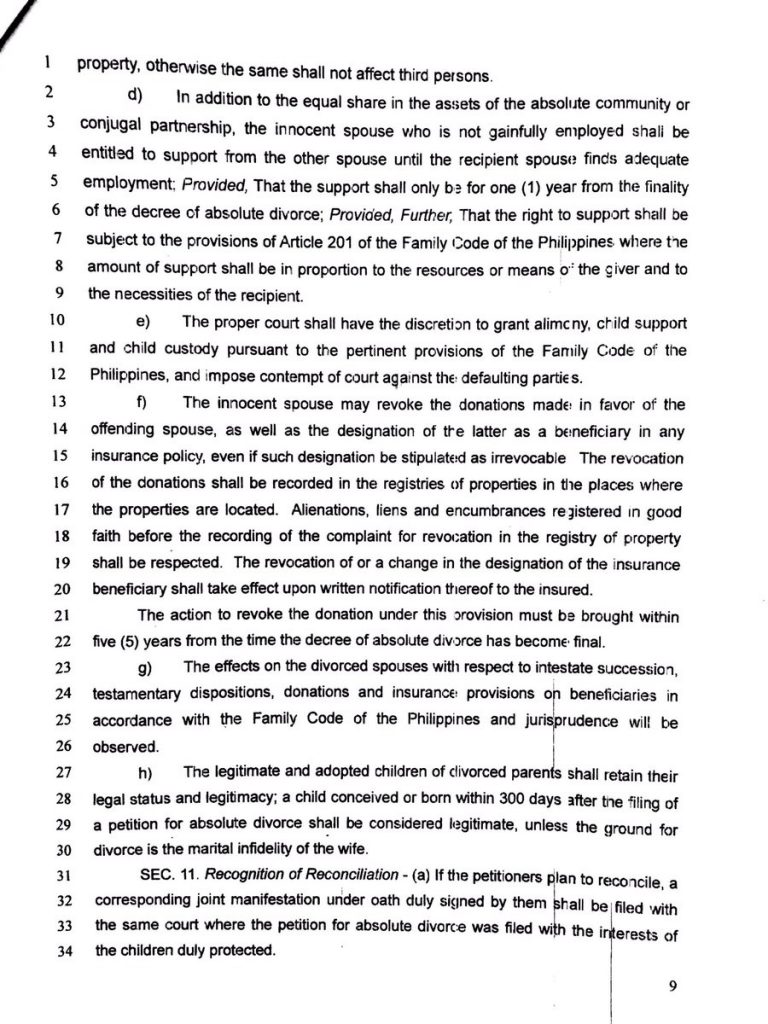10 things you need to know about the Divorce Bill in Congress
The proposed bill titled “An Act Instituting Divorce and Absolute Dissolution of Marriage in the Philippines”, substituted House Bills 116, 1062, 2380 and 6027 and passed committee level on February 21, 2018. For the first time in the history of the House of Representatives, a Divorce Bill will reach the House Plenary for deliberation .
The need for a Divorce Law is real. It is long overdue. It is high time that the state gives women, and men, in abusive and irreparable marriages the option to file for divorce. There is progress . The House Committee on Population and Family Relations unanimously approved the proposed “An Act Instituting Divorce and Absolute Dissolution of Marriage in the Philippines”, a consolidation of four separate measures filed by at least 30 congressmen. Here are the highlights of the proposed law.
1. Spouses have the option to file for an absolute divorce, a legal separation, or annulment of marriage.
2. The government should assure that the divorce shall be inexpensive and its process, efficient.
The “indigents,” defined under the bill are those who do not have real property of more than P5 million can avail of the court’s services for free. Section 6 (c) of the bill states that “Upon application of a qualified indigent petitioner, the proper court shall waive the payment of filing fees and other costs of litigation, and shall appoint a counsel de oficio for said petitioner and assign social workers, psychologists, psychiatrists preferably from appropriate government agencies to assist the said petitioner and the court,”
3. The bill also provides summary judicial process or an expeditious manner of resolving the petition of divorce but only on these grounds:
(a) when the spouses have been separated for at least five years;
(b) when one of the spouses has contracted a bigamous marriage;
(c) when the spouses have been legally separated by judicial decree for two years or more;
(d) when one of the spouses has been sentenced to imprisonment for six years, even if subsequently pardoned; and
(e) when one of the spouses has undergone a sex reassignment surgery.
The summary judicial proceedings may be concluded in less than a year.
4. The grounds for absolute divorce under Section 5 are as follows:
- Physical violence or grossly abusive conduct directed against the petitioner, a common child or a child of the petitioner;
- Physical violence or moral pressure to compel the petitioner to change religious or political affiliation;
- Attempt of respondent to corrupt or induce the petitioner, a common child or child of petitioner to engage in prostitution;
- Imprisonment of respondent for more than six years, even if pardoned;
- Drug addiction or habitual alcoholism or chronic gambling on the part of respondent;
- Respondent’s homosexuality
- Bigamous marriage contracted by respondent
- Marital infidelity or perversion or having a child with another person other than spouse during marriage, except upon mutual agreement;
- Attempt against the life of the petitioner, common child or child of petitioner
- Abandonment by petitioner or by respondent without justifiable cause for more than one year.
Under the bill, the grounds for a judicial decree of absolute divorce are the grounds for legal separation under Article 55 of the Family Code of the Philippines and grounds for annulment of marriage under Article 45 of the Family Code of the Philippines.
5. The filing of joint petition for absolute divorce by spouses who are separated for five years or legally separated by judicial declaration for at least two years.
6. The policy of the state to protect and preserve marriage as a social institution. One of these is the mandatory cooling-off period but it is waived in cases of domestic abuse or if there is danger against one spouse or a child. There’s also a provision in the bill that mandates the state to conduct pre-nuptial and post-patrimonial activities in order to emphasize that marriage is a social institution.
7. Petitioners who are OFWs (overseas Filipino workers) shall be given preference by the proper court with respect to the hearing of their petitions and the court shall set the reception of evidence, upon the availability of the petitioners, for not more than two consecutive days.
8. The proposal imposes the penalty of imprisonment of five years and a fine of P200,000 to a spouse who is party to a petition for absolute divorce, who is found by the court to have used threats or coercion to compel the other spouse in filing the petition, and to spouses who are guilty of collusion.
9. Section 2 of the proposed bill gives us the rationale for a divorce law, and that while the state “continues to protect and preserve marriage as a social institution and as the foundation of the family,” a divorce would give a chance for couples to terminate “a continuing dysfunction of a long broken marriage.” The bill hopes to “save the children from pain, stress and agony consequent to their parents’ constant marital clashes” and “grant the divorced spouses the right to marry again for another chance at marital bliss.”
10.The still unnumbered bill was recommended by a technical working group headed by Albay Rep. Edcel Lagman. The proposed bill titled “An Act Instituting Divorce and Absolute Dissolution of Marriage in the Philippines”,” substituted House Bills 116, 1062, 2380 and 6027
If you feel that the divorce bill is important to you, show your support for it. If you are against it, then voice your opinion as well. Think about the benefits and consequences carefully. Think about how you, someone you know, or even how your own children will be affected by the bill if it becomes law.
Read “An Act Providing for Absolute Divorce and Dissolution of Marriage” (Images via https://twitter.com/VinceNonatoINQ )

